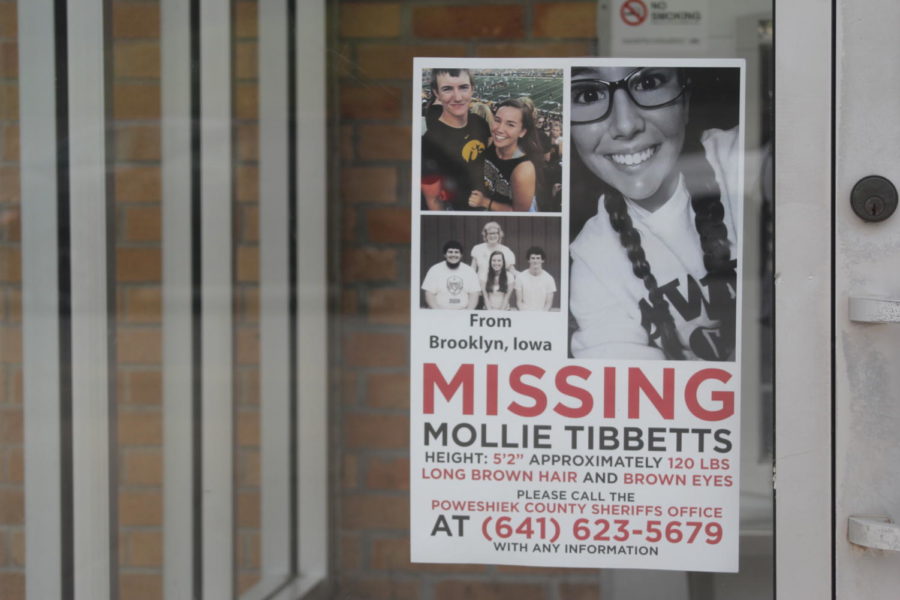Editorial: Do not use the death of Mollie Tibbetts as a political strategy
August 21, 2018
The death of University of Iowa student Mollie Tibbetts is a tragedy.
As a young woman, she shouldn’t have had to fear for her life while doing an act as simple and as normal as jogging in her hometown.
But now her family, her university, her city and her state must mourn the loss of a life gone too soon. Even more so, the memory of Tibbetts and how she is framed by public perception and the media is already changing form. The narrative surrounding her death is shifting.
Early on in Tibbetts’ disappearance loomed a heightened sense of fear in Iowa with false reports of upticks in sex trafficking spreading across social media at a rapid rate.
And this narrative began to shift again Tuesday after authorities announced that Poweshiek County resident Cristhian Bahena Rivera, 24 was charged with first degree murder in coordination with Tibbetts’ death. According to authorities, he is an undocumented immigrant.
And as details unfold surrounding Tibbetts’ final hours, politicians and public figures across the nation have begun to capitalize on his immigration status, an already divisive topic in the United States, that may stand to redefine the perception of what occurred on the evening on July 18.
While there is no attempt to underscore the monstrous acts that resulted in Tibbetts’ death, it is important for those following the case closely to not stereotype an identity or a community based on a singular incident.
In a statement released shortly after authorities announced the arrest of Rivera, Iowa Gov. Kim Reynolds said, “We are angry that a broken immigration system allowed a predator like this to live in our community, and we will do all we can to bring justice to Mollie’s killer.”
And at rally later that evening hosted by President Donald Trump, he said: “You heard about today, with the illegal alien coming in from, very sadly, from Mexico,” he said. “And you saw what happened to that incredible, beautiful young woman.”
But Tibbetts didn’t die because of a broken immigration system. She died because a sick individual decided to take her life.
All this being said, the argument could be made that having a tougher immigration system could have prevented this tragic incident from occurring — but it is not the solution, and it is not fair to use this tragedy to bolster either side of the immigration debate.
And as details continue to unravel in the death that has shocked a nation, Tibbetts should not be forced to serve as the figurehead of the immigration debate, nor should her disappearance have been used as the sole reason for caring about the pervasive issue of human trafficking in Iowa.
Both issues deserve attention, but the death of Tibbetts’ should not be used to drive a political narrative or frame the perception of an issue to the public.







